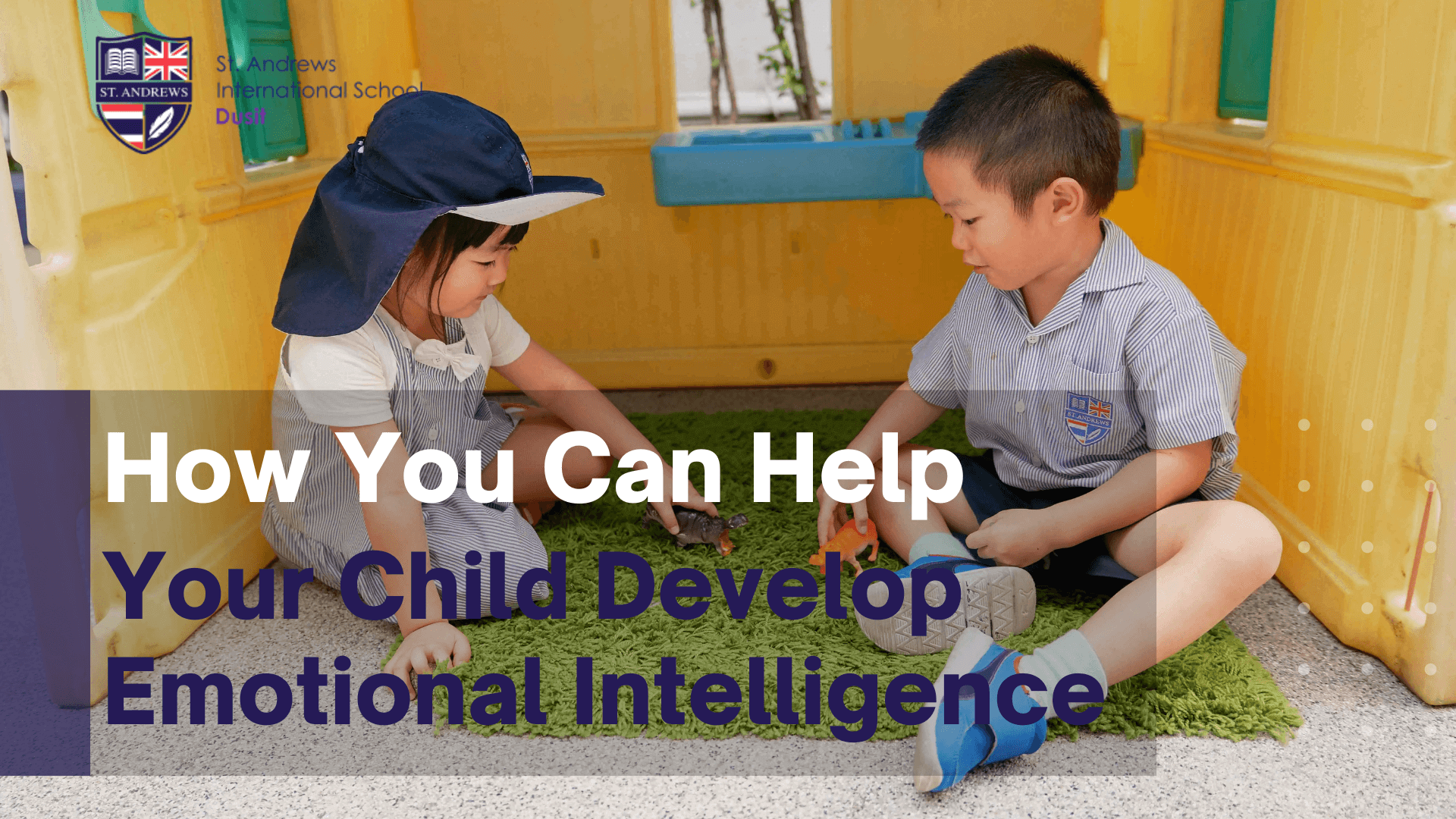Raising emotionally intelligent children is an integral part of parenting. It’s one of the most effective ways to instill life-long skills that will help children thrive and succeed throughout their lives. Emotional intelligence is defined as the ability to recognise, understand, and manage emotions in ourselves and others. It is a critical part of growing up and learning how to navigate relationships, manage stress, and make sound decisions.
For parents, it’s essential to be proactive in teaching and nurturing these skills in children. Finding ways to help a child develop emotional intelligence can be difficult and often requires an active effort. This blog post will explore how parents can help their child build these essential life skills and become more emotionally intelligent. We will cover various tips to help you foster an emotionally intelligent environment at home. The goal is to empower you as a parent so you can best equip your child to understand and express their emotions in a healthy and productive way.
Model Positive Behaviour
One of the best ways to help your child develop emotional intelligence is to model positive behaviour. Show your child that it is possible to express their feelings, listen to others, and work through any conflicts they encounter. When they see you responding to challenging situations with patience and understanding, they will be more likely to do the same. Additionally, take time to talk with your child about their feelings and help them to express themselves in a healthy manner. When you take the time to understand and empathise with your child, it will go a long way in helping them to develop their own emotional intelligence.
Avoid Negative Labels
A crucial part of helping your child develop emotional intelligence is teaching them to understand and control their emotions. One way to do this is by avoiding negative labels. Negative labels can not only be damaging to a child’s emotional health but can also be counter-productive. Labeling a child as “lazy” or “stupid” can create feelings of shame and inadequacy, which can actually make it harder for your child to learn. Instead, focus on the behaviour and help your child learn to better express their emotions. Help them understand why they feel the way they do, and how they can control their emotions in a healthy way.
Praise Effort and Progress
Praising effort and progress is an effective way to help your child develop emotional intelligence. Showing your child that you recognise and appreciate their hard work can help them become more motivated to continue striving for success. It can also help them feel more confident in their abilities and foster a growth mindset. Additionally, by praising the progress your child has made, instead of only the end result, you can help them stay focused on the process of growth and success.
Listen and Show Empathy
Listening and showing empathy are two key elements of helping your child develop emotional intelligence. Listening involves actively engaging with your child, paying attention to their thoughts and feelings and responding in a thoughtful way. Showing empathy involves trying to empathise with your child’s feelings. It’s important to make sure your child feels heard and understood. Be patient and let your child express their emotions without judgement. It’s also important to remember that everyone expresses emotions differently and what works for one child may not work for another. Encourage your child to be open and honest about their feelings and remember that showing empathy is not the same as agreeing with their viewpoint.
Encourage Self-expression

Self-expression is an important part of emotional intelligence. By encouraging your child to express their feelings and thoughts, you can help them to better understand themselves and their emotions. This will also help them to cope with and manage their emotions, as well as to develop empathy for others. One way to do this is to provide them with a safe and supportive environment in which they can express themselves without judgement. You can also use creative activities such as art or music to help them express their feelings.
Teach Problem-solving Skills
Problem-solving skills are key components of emotional intelligence. Helping your child develop the ability to think critically and come up with creative solutions to problems will make them more resilient and better-equipped to handle challenges in the future. Encourage your child to think outside the box and come up with creative solutions, rather than just following instructions. This could include activities like brainstorming challenges and coming up with solutions, playing problem-solving games, and role-playing scenarios that require problem-solving. This will improve your child’s confidence in their own abilities, as well as their emotional intelligence.
Help Them Develop Self-awareness
Self-awareness is the first step to developing emotional intelligence. It is the ability to recognise your own feelings and be aware of how those feelings can affect your judgment and behaviour. It can help your child to better understand their emotions, strengths, and weaknesses. Parents can help children develop self-awareness by encouraging them to talk about their feelings, and to take time to reflect on their behaviour. Parents can also listen to their child’s feelings without judging or criticising, and can help them find ways to express their feelings in a healthy way. Providing a safe and supportive environment for your child to express themselves can help them to develop their self-awareness.
In conclusion, it is essential to remember that developing emotional intelligence takes time and practice. Parents can provide guidance, support, and a safe environment for their children to practice and grow in their emotional intelligence. As parents, it is important to model what it looks like to have emotional intelligence and to be self-aware. By doing this, you are giving your child the tools and skills to help them to live a happier and more fulfilled life.
At St Andrews Dusit, we offer a range of activities to help children develop emotional intelligence. We provide activities that encourage children to express themselves, take responsibility for their emotions and choices, be aware of their feelings and the feelings of others, and learn how to manage their emotions positively. Schedule a tour to discover how St Andrews Dusit is one of the top international British schools in Bangkok.




